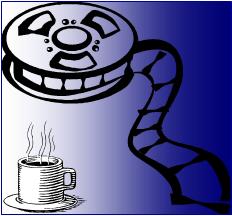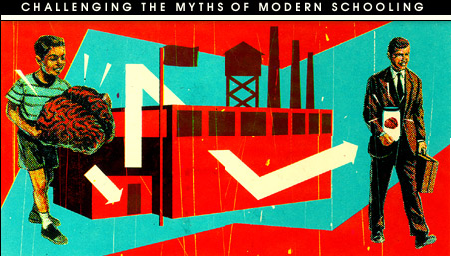

|
 |
Gran Torino ______ 9.5/10
|
Please go to the new Coffee Coaster site implemented more gracefully in Wordpress. This page: http://brianrwright.com/CoffeeCoasterBlog/?p=6542 |
Clint Eastwood ... Walt Kowalski
Christopher Carley ... Father Janovich
Bee Vang ... Thao Vang Lor
Ahney Her ... Sue Lor
Brian Haley ... Mitch Kowalski
Geraldine Hughes ... Karen Kowalski
Dreama Walker ... Ashley Kowalski
Brian Howe ... Steve Kowalski
John Carroll Lynch ... Barber Martin
Walt Kowalski: Oh, I've got one: A Mexican, a Jew, and a colored guy go into a bar. The bartender looks up and says, "Get the fuck out of here."
Walt Kowalski: Take these three items, some WD-40, a vice grip, and a roll of duct tape. Any man worth his salt can fix almost any problem with this stuff alone.
Walt Kowalski: [to Father Janovich] The thing that haunts a guy is the stuff he wasn't ordered to do.
Walt Kowalski: [to Father Janovich] I think you're an overeducated 27-year-old virgin who likes to hold the hands of superstitious old ladies and promise them everlasting life.
Highland Park, Michigan, resident and retired lifelong Ford employee Walt Kowalski (Clint Eastwood) seems to be full of conflicts—racism, nationalism, the inclination to use force to solve problems, anger at his suburban offspring for buying foreign cars—but there's only one conflict, an internal one, that truly affects him mercilessly. But he refuses to take solace in any of the standard havens: golf, psychotherapy, religion; indeed, he has a disdainful attitude toward anything that might appear superficial and/or weak.
The movie opens at the memorial services in the local cathedral for his wife —Father Janovich (Christopher Carley), who looks like he just came from his high school graduation ceremony, presiding. Kowalski's two grown sons are in the congregation, along with his two spoiled, disrespectful grandchildren. There's a conversation between the brothers during the ceremony which, along with Kowalski's stiff guttural, under-the-breath utterances of disapproval, quickly and efficiently frame the man's character. By the time of the reception we see the whole picture.
Kowalski is a pure Detroit throwback, a shot-and-a-beer, love-it-or-leave-it, old-neighborhood-glorifying piece of work. Behind the gruff exterior is only a glimmer of anything sensitive or caring... much less tolerant of change. The other white ethnic Europeans Walt hangs out with basically see the world as he does, but they've grown into the times, and don't drag around a pain body the size of the Penobscot Building. Walt is not about to give up that pain body. Dammit, he earned it.
Roughly coincident with the departure of Kowalksi's wife, an extended family of Hmong Asian people moves in next door. The neighborhood lies in a typical deteriorating American city where "white flight"[1] is the name of the game: either the problem or a symptom of the problem, depending on your point of view. It really doesn't matter to Walt what's causing the decline of the properties around him—unlike the other homes nearby, his is well-maintained, neat, mowed, even with a remodeled garage—he's not leaving, and he's not the mingling type. As a Korean War vet, he especially hates "gooks."
In that updated garage of his sits
his 1972 Gran Torino, a prize possession if there ever was one. What the automobile, a modestly elegant "big" muscle car in its time, symbolizes is fairly obvious, especially as the plot unfolds. Certainly it's a symbol of holding on to the past, but more than that, the Torino represents something good about the past... that's worth hanging onto. I find the symbolism of the car initially at odds with its owner, because Kowalski dwells in a past dominated by silent suffering; something so beautiful doesn't seem to fit what he is.
Then the plot unfolds with the new neighbors. The two teenagers, a boy Thao Lor (Bee Vang) and a girl Sue Lor (Ahney Her)—both of whom speak English quite well and are comfortably, at least respectfully, embedded in their extended family—interact with the hostile Kowalski. First, Sue, who is simply adorable, sees precociously into Walt's soul... finding, if you will, the Gran Torino he's buried inside. Such an exceptional character obviously played so convincingly by Ahney Her reveals the brilliance of the writing, directing, and acting for this poetic journey of a movie. Just watching Sue's heroic struggle and her passion for life is a complete cinematic experience.
The Academy seriously overlooks at least one nomination there.
Sue basically wears down the old man and convinces Kowalski to give her brother some work to do to pay off an obligation that the Lor family feels is due to Kowalski. Thus begins one of the most interesting relationships in all of film history, kind of a Karate Kid in reverse. And the developing bond provides the context for the remainder of the story... right through the ending credits with a wonderful sunny-day view pointed northward along Jefferson Avenue with the Grosse Pointe Yacht Club on the right.
One quality of the movie for which I was unprepared—and totally gratified to witness—is how wickedly funny it is. Racial nicknames and stereotypes are thrown about with abandon mainly for Poles, Italians, the Irish, and Asians—mostly Asians. (I never realized there were so many slurs for them.)[2] And this whole business of ethnic slurring, mostly in a context of familiarity that shows caring, is what undoubtedly drives the movie-critic community up a wall. So much so, that reading the average movie review in the MSM you'd think Gran Torino is about racism.
Nothing could be further from the truth... at least not in the way that so many critics frame their comments. In fact, I'll speculate that the reality-check on mind-control and political correctness that the movie presents —namely, that good people can use ethnic nicknames in a context of healthy self-expression—is the main reason the Academy snubbed the film. Bravo to Eastwood for sticking the truth up their overwrought wazoos, and doing so in just the right manner. Gran Torino, if you don't want to accept any unearned racial guilt, is a verbal comedy castle. LOL.
There are so many unexpected delights here. You learn about a different culture, the Hmong people of southeast Asia. You come away with a profound appreciation of individuals who try to do their best, especially those, however poor, who are fortunate to be with good family. You can see the story as one long hymn to the importance of real family values and real family. The fact that many poor blacks have such poor-to-nonexistent family connections—hark back to the days when the slavers disrupted families on purpose—is a glaringly obvious explanation of why they won't get ahead as well as those who do... and where we as concerned citizens need to focus our voluntary help.
Then there's Walt's personal demons, and his relationships with his family, and his attitudes and beliefs about religion (even the priest is given an interesting multidimensional persona), the resonance with old values of ethnic European neighborhoods in the Rust Belt, the issue of gangs, the problems of aging, the matters of "life and death" that must be resolved. This movie is deep and multifaceted; they give a credit to Johannson for the story, but I can't find anything about him on the Web. If any of you do, please forum.
This movie is a 10 in sheep's clothing. I think the Academy also can't tolerate a producer/director like Eastwood who makes perfect films so efficiently, like Good Will Hunting making it look so easy it's embarrassing.
A word about viewing context: I happened to take my 82-year-old mother with me for an afternoon viewing at one of the local gargantuaplexes. Recall when I viewed Dark Knight with some friends of my Baby-Boomer age group a while back, and Bill commented, "You know, this movie and all the previews were essentially a pulsating series of explosions and gory acts of violence, conducted at ear-splitting decibel levels." Well, the previews for Gran Torino were exactly so on this occasion for Mom and me. What is the deal? It's enough to make you wish for more Walt Kowalskis in the world... in a bad mood where they'll try to squelch all the disrespect. Then I realize the point of Gran Torino: Dirty Harry isn't the answer to our many problems, rather an illusion that makes them worse.
[1] Ref. the watershed book on urban removal by Jane Jacobs, The Death and Life of Great American Cities.
[2] Eastwood does remain politically correct in the movie with respect to not using the more negative terms for Jews (the K-word) and for blacks (the N-word). There's a whole question that suddenly occurred to me of whether it would be better if we had other slang names for blacks and Jews, so people of these groups could feel they could fit in the same way as when a Pole calls an Italian friend a Dago or an Italian calls a Pole friend a Polack. (?)
Law Enforcement Against Prohibition


 Click banner to order, click here for book review
Click banner to order, click here for book review
 Click banner to order, click here for book review
Click banner to order, click here for book review
 |
 |
|||
| |